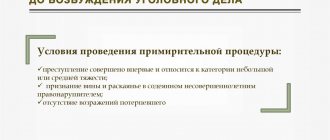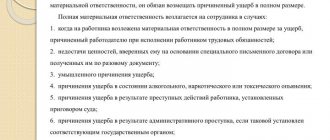What is theft under the law?
By law, theft is understood as the appropriation of someone else's property for subsequent use for one's own purposes, thereby violating the property rights of the victims. The basic concept of theft is contained in Article 158 part 1. As an aspect of property in this context, objects created through human activity are considered. They can have material value as well as spiritual content. If we look at the substantive aspect, where Article 158 Part 1 is of key importance, then such a concept as someone else’s property has its own characteristics:
- property objects that qualify as foreign must necessarily be tangible (that is, they can be picked up or touched);
- these items must be extracted from the reserves of nature with the help of human activity, have a value expression (these include not only real estate, but also cash, all types of securities);
- the person who steals the item must not be its owner. Ownership is confirmed by documents issued at the registration chamber upon acquisition of movable and immovable property. If we are talking about things, then the person who purchased them on his own has purchase receipts.
Article 158 part 1 of the Criminal Code of the Russian Federation establishes the correct understanding of citizens about the concepts and ownership of property.
Types of punishment for theft
Theft, as a type of crime, is qualified by Article 158 of the Criminal Code of the Russian Federation, which defines several types of theft and, accordingly, responsibility for them:
- Part 1 Art. 158 of the Criminal Code of the Russian Federation - secret theft of someone else's property:
shall be punished maximum by imprisonment for up to 2 years, minimum by a fine of up to 80,000 rubles.
- Part 2 Art. 158 of the Criminal Code of the Russian Federation - secret theft of someone else’s property committed: by a group of persons by prior conspiracy, when the co-perpetrators agree on the act before it begins to be committed; with illegal entry into a premises or other storage facility - secret or open entry into a premises for the purpose of stealing someone else’s property; causing significant damage (damage is determined taking into account the property status of the victim, but it cannot be less than 5,000 rubles) or from clothing, a bag or other hand luggage that was with the victim:
Also read: How to make a request to familiarize yourself with the materials of a criminal case: example sb writing samples
is punishable by a maximum of imprisonment for a term of up to 5 years with restriction of freedom for a term of up to one year, a minimum of a fine of up to 200,000 rubles.
- Part 3 Art. 158 of the Criminal Code of the Russian Federation - secret theft of someone else's property, committed: with illegal entry into the victim's home - secret or open invasion with the aim of stealing property; from an oil pipeline, oil product pipeline, gas pipeline; on a large scale (when the amount of theft exceeds 250,000 rubles); from a bank account, as well as in relation to electronic funds:
shall be punished maximum by imprisonment for a term of up to 6 years with a fine of 80,000 rubles, minimum by a fine of up to 500,000 rubles.
- Part 4 Art. 158 of the Criminal Code of the Russian Federation - secret theft of someone else’s property, committed: by an organized group; on an especially large scale (when the amount of theft exceeds 1,000,000 rubles):
shall be punishable by imprisonment for a term of up to 10 years with a fine of up to 1,000,000 rubles and with or without restriction of freedom for a term of up to 2 years. By way of clarification, it is worth noting that premises subject to illegal entry are understood as buildings and other structures intended for the temporary presence of people or the placement of material assets. In this case, the form of ownership of the premises does not matter.
Amendments to Article 158 of the Criminal Code in 2022
Code of Administrative Offenses of the Russian Federation. Article 111 part 1 of the Criminal Code of the Russian Federation suspended sentence? Amendments to the Criminal Code 2022 (It is interpreted broadly - that is, in the sense that since it cannot be aggravated, it can be improved) 2) Part.
2 10 of the Criminal Code if the sentence has not yet been served: reduction of the term.
In some cases, it means: mitigation of the severity of the punishment; reducing the term of serving in places of deprivation of liberty; abolition of additional types of punishments.
If the crime is committed on a large scale or by a group of persons, the punishment will be 5 years in prison. The amount of fines depends on the severity of the crime. If it was recognized as large, you will need to pay 100 thousand rubles, if especially large - 1 million.
Article 327 was amended and supplemented.
Two new parts were introduced into Article 2022 of the Criminal Code of the Russian Federation. The punishment for falsely reporting a terrorist attack to destabilize society has been changed. Now for this kind of crime you will have to pay a fine of up to 1 million rubles.
In 2022, some amendments were made to the Criminal Code of the Russian Federation. And already this year they came into action.
Some adjustments were supposed to take effect earlier, but the Department of Justice believed that more funds would have to be raised to make this happen.
The punishment for fraudsters also requires changes, but no strict amendments have been made. In recent years, this category has been changed several times, and all the amendments have only made life easier for criminals.
Quite large changes were made regarding management relations. If a citizen evades surveillance, or fails to comply with legal restrictions more than once, he will be held responsible for this.
Termination of a criminal case due to the insignificance of the act
As previously stated, as a general rule, cases involving minor factors should not be brought at all. However, in practice this still happens when investigators miss this point.
A criminal case initiated for committing a minor act must be terminated by the court.
The case is terminated under Part 1 of Art. 24 of the Code of Criminal Procedure of the Russian Federation due to the lack of corpus delicti. The judge must make sure that the minor act committed is not a crime, since it excludes a public danger.
The termination of the criminal case will take place in a general manner. The judge will make a decision to terminate the criminal case in the deliberation room.
Also read: What acts are subject to criminal liability from the age of 14
All participants in the criminal case will receive copies of this document. The resolution, like any other document, can be appealed.
Changes to the Criminal Code of the Russian Federation from June 28, 2022
E. Paramonova:
One of the innovations of the Criminal Code is the introduction of mediation into criminal proceedings. Today we see that mediation is one of the most effective ways to resolve conflicts. This is an out-of-court dispute resolution procedure with the participation of an independent mediator. It should be noted that our criminal legislation does not regulate the procedure for negotiations between the parties in order to compensate for the harm caused by the crime and achieve reconciliation. The search for a compromise is left to the discretion of the accused and the victim. But in practice, they often involve lawyers who actually act as mediators in resolving the conflict. However, each lawyer acts unilaterally, defending the interests of his client, which is not consistent with the appointment of a mediator - an independent, impartial third party to the negotiations. This will become the basis for introducing the mediation procedure into criminal proceedings.
N. Filippova:
In 2022, some amendments were made to the Criminal Code of the Russian Federation. And already this year they came into action. Some adjustments were supposed to take effect earlier, but the Department of Justice believed that more funds would have to be raised to make this happen.
There have been changes to the Criminal Code more than once that relate to the simplification of punishment for crimes of minor gravity. This is a completely civilized decision, since because of the stupidity that happened, a person can lose many years of his life in prison.
N. Filippova:
The bill adds new articles to the Criminal Code that provide for criminal liability for the intentional illegal collection or provision of information about the private life and (or) personal data of another person without his consent. In addition, liability will also be provided for failure to comply with measures to ensure the protection of personal data by the person processing personal data, which through negligence resulted in their dissemination and causing grave consequences.
E. Paramonova:
By the way, increased liability is provided for the commission of these actions in relation to a person or his relatives in connection with the performance of official activities or the performance of public duty.
In addition, it is proposed to establish liability for the dissemination of prohibited information by owners of Internet resources that are not mass media, in the event of repeated commission of such actions within a year after the imposition of an administrative penalty for the same violation. The maximum penalty is up to two years. If the dissemination of personal data caused harm to him or his family, then imprisonment for up to five years. A law on the protection of personal data is also being developed.
Amendments to the Code of Criminal Procedure of the Russian Federation are of a technical nature. Two new articles of the Criminal Code of the Russian Federation have been added to Article 31 of the Code of Criminal Procedure of the Russian Federation, which regulates jurisdiction and determines that acts of this kind will be considered by magistrates. In addition, new articles have been added to Article 150 of the Code of Criminal Procedure of the Russian Federation and Article 151 of the Code of Criminal Procedure of the Russian Federation, which regulate, respectively, the forms of preliminary investigation and jurisdiction.
Legal documents
- Federal Law of July 26, 2017 N 203-FZ
- Article 171.3 of the Criminal Code of the Russian Federation. Illegal production and (or) circulation of ethyl alcohol, alcoholic and alcohol-containing products
- Article 171.4 of the Criminal Code of the Russian Federation. Illegal retail sale of alcohol and alcohol-containing food products
- Article 171 of the Criminal Code of the Russian Federation. Illegal business
- Article 327.1 of the Criminal Code of the Russian Federation. Production, sale of counterfeit tax stamps, special stamps or marks of conformity or their use
- Article 31 of the Code of Criminal Procedure of the Russian Federation. Jurisdiction of criminal cases
- Article 150 of the Code of Criminal Procedure of the Russian Federation. Preliminary investigation forms
- Article 151 of the Code of Criminal Procedure of the Russian Federation. Jurisdiction
Necessary defense
Whether necessary defense against a minor act is permissible is a complex and debatable question. Even though the legislator clearly and comprehensively explains this issue, many legal scholars do not share his point of view.
The use of necessary defense is unacceptable in relation to a person who has committed a minor act.
Insignificance does not imply a public danger, which is why no one has the right to rebuff the violator.
If the act is considered minor, the victim, who acted within the limits or not within the limits of necessary defense, will bear liability in accordance with the law.
That is, it turns out that when administrative offenses are committed, victims also do not have the right to defend themselves. But they don’t always know that the actions taken against them are not dangerous.
What amendments are expected by the Russian Criminal Code by May 9, 2022?
Apology of Protest lawyer Alexander Peredruk does not understand why this law was adopted at all, since in practice he has not encountered anyone having claims related to the financing of public events.
- Deliberate blocking of transport communications and transport infrastructure facilities.
- Obstructing the movement of vehicles and pedestrians on communication routes and the road network.
The new version of Article 230 of the Criminal Code of the Russian Federation “Inducement to consume narcotic drugs, psychotropic substances or their analogues” provides for criminal liability for the use of information and telecommunication networks, including the Internet, when committing a crime. Such actions are a qualifying feature providing for liability under the second part of Article 230 of the Criminal Code of the Russian Federation.
Both laws came into force 10 days after their official publication. There are more officials being prosecuted for crimes of a corruption nature. Responsibility for inducing the use of narcotic drugs, psychotropic substances or their analogues using information and telecommunication networks, including the Internet, has been tightened.
Amendments were made to the notes to the articles. Now they indicate that in the current articles of Chapter 30 of the Criminal Code of the Russian Federation, officials are recognized as persons who permanently, temporarily or by special authority exercise the functions of a government representative or perform organizational, administrative, administrative and economic functions:
It is worth noting that previously an amnesty for prisoners was expected for the 75th anniversary of the Victory. But the pandemic, as always, disrupted many payments, so the prisoners were not destined to go home to their families ahead of schedule. Since it is time to carry out a criminal amnesty, there is a high probability that this will happen next year.
Recent data regarding the criminal amnesty suggests that it may take place in 2022. At least, this conclusion suggests itself after analyzing a recent comment from President Vladimir Putin.
In Russia, amnesties are generally used to coincide with some holidays or important dates. The last time it was held was in 2015, when the 70th anniversary of the Victory in the Second World War was celebrated. In 2022, according to some experts, the amnesty could be timed to coincide with the anniversary of the existence of the State Duma.
- exemption from conviction for crimes committed through the negligence of persons under 18 years of age;
- women who have children under 18 years of age and pregnant women;
- men over 60 and women over 55 years old;
- men if they have children under 3 years of age;
- disabled people of the first, second or third group, if they have served more than one quarter of the established term.
Otherwise, if the convicted person previously served a sentence, but is now in the zone under a sentence for an unintentional crime with a term of less than five years, then the amnesty applies to him. As a rule, sentences for unintentional crimes are served in colony settlements and this point is relevant for them. On the forum of police officers, we were able to find draft resolution No. 266546-7
- Also, one day in a pre-trial detention center will be equal to two days under house arrest or a penal colony.
- Now one day in a pre-trial detention center is equivalent to one and a half days in a general regime colony or educational colony.
This question worries not only those who are serving time in remote places, but also their relatives and close people.
Moreover, law-abiding representatives of the entire society show interest in amnesty, wanting to understand how safe and fulfilling their lives will be.
The term will not change if the sentence is served in a disciplinary military unit, in a prison or a maximum security colony.
Here the judge himself can vary within the limits of the sanction: he wants to give 8, he wants 10, 12, 15, etc.
No matter how unfair the decision may seem to us, it will at least be considered legal, we can appeal it if we don’t like something. But there are situations when the decision is still considered illegal.
For example, in case of attempted crime, when the punishment cannot be more than ¾ of the maximum punishment.
Arbitrage practice
Based on judicial practice, which is formed through the study by the judicial authorities of the territorial units of the country of various situations related to the theft of funds and other people's property owned by citizens. Article 158 of the Criminal Code applies to all judicial bodies, even in the presence of internal regional regulations that work optimally.
The court, which carries out the work of restoring justice and imposing penalties, cannot always immediately understand the current situation and is guided by an individual approach to each citizen. The main problematic issues when considering criminal proceedings, where theft under Article 158 is considered a key aspect, are:
- the ability to differentiate petty thefts from other minor thefts, qualify the crime properly, and correctly assign punishment;
- consideration of issues related to theft of large or especially large values;
- the process of determining the signs that characterize theft;
- bringing to responsibility due to repeated violation of the law, as well as a combination of several crimes related to theft in one process.
Another problem is the lack of awareness of people about punishment; usually few citizens know what responsibility theft entails and what article stipulates for its commission. The solution to this issue can be considered preventive work with the population in terms of legal literacy.
Article 158 part 3 amendments 2022
Reducing the term of imprisonment or forced labor under certain conditions is called parole (parole). If these conditions are violated, as well as in the presence of serious administrative offenses and crimes, the “udoshnik” may return to the MLS.
The main provisions of exemption from punishment are set out in Chapter 12 of the Criminal Code of the Russian Federation. Clause 3 of Article 79 of the Criminal Code of the Russian Federation states that a convicted person can receive parole if at least 1/3 of the term has passed for a crime of minor or moderate gravity, ½ of the term for a serious crime, and at least 2/3 for a particularly serious crime. Moreover, the term refers to the maximum term established by the code for a given category of crimes, and not the one that the convicted person received.
Within 180 from the date of adoption of the project In relation to criminals serving imprisonment in places of maximum security and persons who were faced with the assignment of the following works as a result of the court decision:
The President instructed to create a system of correctional centers in the country by 2022, due to which it will be possible to reduce the number of convicts in colonies.
Vladimir Putin announced this task at the ceremony of introducing officers appointed to senior command positions to him, Interfax reports. Article 53.1, regulating this type of criminal punishment as forced labor, appeared in the Criminal Code of the Russian Federation in 2022. Forced labor is an alternative to imprisonment.
They can be used for minor or moderate offenses, or for a serious crime committed for the first time. Actions aimed at inciting hatred or enmity, as well as humiliating the dignity of a person or group of persons on the basis of gender, race, nationality, language, origin, attitude to religion, as well as membership in any social group, committed in public, including using the media or information and telecommunication networks, including the Internet, by a person after he has been brought to administrative responsibility for a similar act within 1 year.
It is not yet clear how the provision of information centers and sites will be organized. The financial and economic justification for the document notes that it will not entail costs. However, these centers are financed from the state budget.
We recommend reading: Who can be exempt from personal income tax when selling an apartment
Amendments to parole in 2022 Important Project RESOLUTION OF THE STATE DUMA OF THE FEDERAL ASSEMBLY OF THE RUSSIAN FEDERATION much depends on a number of factors, but the draft amnesty has not yet been approved and changes may be made as many believe that it is too loyal In commemoration of the 20th anniversary of the adoption of the Constitution of the Russian Federation and On the 20th anniversary of the formation of the Federal Assembly of the Russian Federation in 2022, guided by the principle of humanism, in accordance with paragraph “g” of Part 1 of Article 103 of the Constitution of the Russian Federation, the State Duma of the Federal Assembly of the Russian Federation decides: 1. 8.
- changing the qualification of the act;
- consideration of the case in a special judicial procedure;
- imposition of punishment below the lowest limit;
- changing the category of crimes;
- jury verdict of leniency.
The list of mitigating circumstances is open and this means that the court has the right to take into account any noteworthy circumstances of the commission of a crime and positively characterizing the defendant, not provided for by law.
One of the reasons for the dismissal of an appeal by the appellate court is the incorrect preparation of the appeal. Always and in all cases, an appeal and any other complaint must be drawn up by a lawyer. In this case, the chances of her satisfaction will increase threefold.
Now that all instances have been passed, and the Chairman of the Supreme Court of the Russian Federation refused to transfer your complaint to the court of cassation or supervisory authority, you also have the opportunity to reduce the sentence. This stage is called in the science of criminal proceedings the stage of execution of the sentence.
In particular, at this stage, the most realistic way to reduce the terms of punishment can be called parole, bringing the sentence in accordance with the requirements of the law, and others.
Separately, I note that according to Resolution of the Plenum of the Supreme Court of April 21, 2009 No. 8, when deciding on parole, it is prohibited to take into account any circumstances not specified in the law - including the danger of a crime (it is already taken into account in the sentence), criminal record (even outstanding) , non-admission of guilt (the most common demand of the administration, if he did not admit guilt, we will not give a conclusion).
- The harm caused by the crime must be compensated (and not necessarily completely);
- In fact, you need to serve 1/3 of the sentence for crimes of minor and moderate gravity, ½ for a serious crime, 2/3 for a particularly serious crime, or the same 2/3 if you previously violated parole.
Interesting amendments, because according to Article 53.1 of the Criminal Code, forced labor cannot be obtained for especially serious crimes, but now it is possible in the form of a substitute for punishment. True, in this case the usual limitation for forced labor does not apply - a maximum of five years. In the form of replacing the punishment with forced labor, you can “leave” for a period of more than five years.
Again, do not forget that any startup is in a “begging pose.” Therefore, in fact, we still need to try to interest investors. 95% of projects that pass the first stage of consideration simply cannot be viable. But a generation has long grown up that is motivated only by perseverance and self-confidence. Without any rational attitude and intellectual component.
In the first case, the official representative of the company must confirm its authenticity. After which he should contact the author of the review and offer several solutions to the problem. In particular, you need to request the application number and data of the client who left the review.






